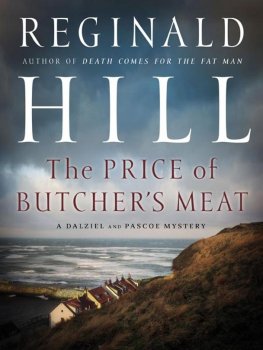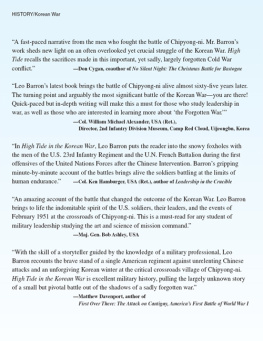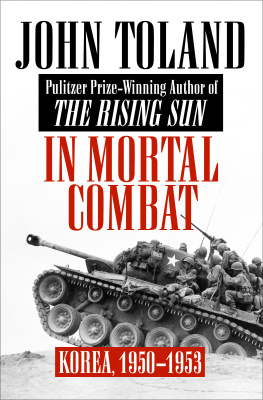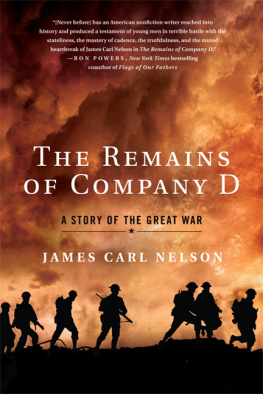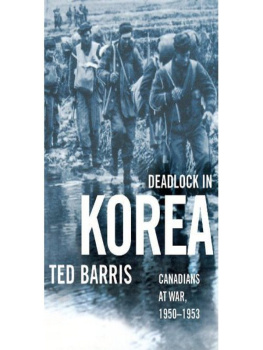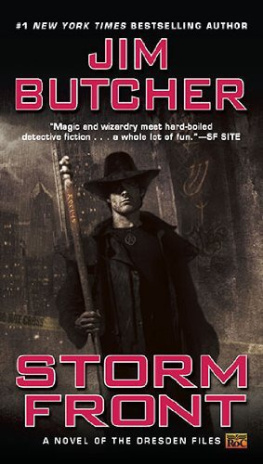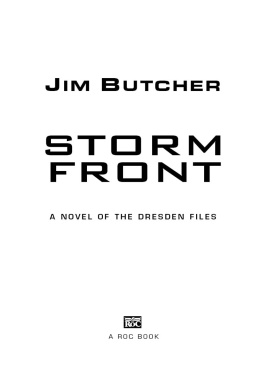KOREA
Traces of a Forgotten War
JAMES N. BUTCHER

KOREA: TRACES OF A FORGOTTEN WAR
2013 JAMES N. BUTCHER
Published by Hellgate Press
(An imprint of L&R Publishing, LLC)
All rights reserved. By payment of the required fees, you have been granted the non-exclusive, non-transferable right to access and read the text of this e-book on screen. No part of this text may be reproduced, transmitted, down-loaded, decompiled, reverse engineered, or stored in or introduced into any information storage and retrieval system, in any form or by any means, whether electronic or mechanical, now known or here-inafter
Hellgate Press
PO Box 3531
Ashland, OR 97520
www.hellgatepress.com
Editing: Harley B. Patrick
Cover Design: Richard Butcher, L. Redding
e-Book edition: April 2013. ISBN: 978-1-55571-726-1
To the memory of all my friends in the 17th Infantry
who did not come home. Your sacrifices for the greater
good are not forgotten by those who survived.
Also By the Author
Abnormal Psychology and Modern Life (15th edition)
With S. Mineka & J. Hooley (2013)
A Beginners Guide to the MMPI-2 (3rd Edition, 2011)
A Beginners Guide to the MMPI-A
With C.L. Williams (2011)
Oxford Handbook of Personality Assessment
J.N. Butcher (Ed) (2009)
Personality Assessment in Treatment Planning
With J.L. Perry (2008)
Assessing Hispanic Clients Using the MMPI-2 and MMPI-A
With J. Cabiya, E.M. Lucio, & M. Garrido (2007)
The MMPI/MMPI-2/MMPI-A in Court (3rd edition)
With K.S. Pope & J. Seelen (2006)
MMPI-2: A Practitioners Guide
J.N. Butcher (Ed.) (2005)
Table of Contents

Preface & Acknowledgments
IT HAS TAKEN MANY YEARS FOR ME TO FINALLY DECIDE to put these experiences from the Korean War in a book. Although I began this project in the 1960s, my professional life took over, and limited my attention to it. In addition, I tend to keep the Korea of 1952-1953 to myself, perhaps because my life is so different since the war ended. Many of the people that I have come to know quite well over my professional career have no knowledge of this earlier life and will, in all likelihood, have some difficulty seeing the person that they have known as a professor or colleague as having experienced these events. All that aside, I decided that it is due time to share these wartime experiences. Events in Korea had a powerful impact, not only on me, but on countless others as well, and relatively little first hand accounts are available.
This book is a description of one infantrymans experiences during the final year of that war and, obviously, not an objective history of the Korean War. The experiences recounted here are highly personal and subjective. If one of my buddies had written of these situations they might have taken a different emphasis or focus. On the other hand, my experiences may be representative of what a lot of other soldiers went through during the later months of the Korean War. The events we were caught up in during the war were accompanied by powerful fears and uncertainties that have left indelible marks on those of us who were theresome veterans have tried to forget these things; others have simply set them aside to go on with the rest of life.
For me, and likely other veterans, our wartime experiences remain quite vivid. Not a day has gone by since I left Korea that I have not replayed some of these scenes in my own consciousnessthey are always ready for instant replay, and often do so even when I do not actively seek them out. These images are like those wagon trails that you can see while flying over western mountainstrails that were worn into the rock and clay by the early pioneers as they moved West in the middle of the 19th century or like the deep wheel grooves that were cut into the stone pavement of the ancient city Ephesus by countless Roman chariots as they made their way through them thousands of years ago.
For various reasons, the Korean War has become known as the Forgotten War. Many Americans know nothing of the battles and conditions described here, one of the primary reasons for writing this book. I feel compelled to keep alive the memories of some of the great guys with whom I served during the Korean War, especially those who died so young. Relatively few Korean War vets have written first person accounts. Others have interviewed some of us. Bill McWilliams excellent 2004 book, On Hallowed Ground, includes descriptions of the battles for Pork Chop Hill based on interviews from people who were there, like me. Anthony Sobieski included in his book a description of a two-man patrol that Bill Estes and I conducted to direct artillery fire against Chinese forces in the Yokkokechon Valley in his valuable 2005 account, Fire For Effect, about artillery in the Korean War.
I contributed a few brief articles about my experiences in published sources. A special issue of Stars and Stripes, commemorating the fiftieth anniversary of the beginning of the Korean War, described the eerie last night of the war on the front (Butcher, 2000). Two articles appeared in the Buffalo Bugle describing events in the Battle for Pork Chop Hill (Butcher, 2000) and an ambush patrol action (Butcher, 2001). Finally, some material included in this book appeared in an invited autobiographical article for the Journal of Personality Assessment (Butcher, 2003).
Affirmation of my strong positive feelings toward the South Korean people is another powerful motivator. Many Koreansboth civilians and fellow combatantsshowed compassion and thoughtfulness in difficult times. Civilians gave me food when I needed it and they had little. One third of our company was Republic of Korea (ROK) soldiers sharing the horrors of the war on dark nights when we were so alone. Even though we did not share a common language, we supported one another and survived together. I appreciated their efforts at the time as I do now.
This book is a departure from my usual professional publications in psychology journals and books. Although there are themes in this book that are explored by clinical psychologists in academic writingslike the influence of severe stress on human memory or the long term consequences of terrifying events on adult developmentthey are presented here in a personal context, not intended as psychological observations. Furthermore, my experiences in the Army and Korea cannot be lumped together as all traumatic or stressful. There were many good times; perhaps more good times and close bonds with friends than there were horrific ones. Boredom during the quiet times along the front should also be mentioned.
I have a word of caution and apology for some of the language used in this book. It is my first publication that includes offensive language like fuck and racial epithets like Japs, Gooks, Chinks, and Darkies. I would be inaccurately portraying the words used during this era if I cleaned up the language. In the 1940-50s racial epithets were commonly used to describe the enemy, and served the purpose of dehumanizing them. I grew up reading newspapers and listening to the radio about Japs and Krauts. Derogatory terms for African-Americans were less commonly used where I grew up in West Virginia. But, as you will see in , I encountered them once joining the Army. My buddies and I never used such terms, but we heard them all too often in 1950s civilian America.


